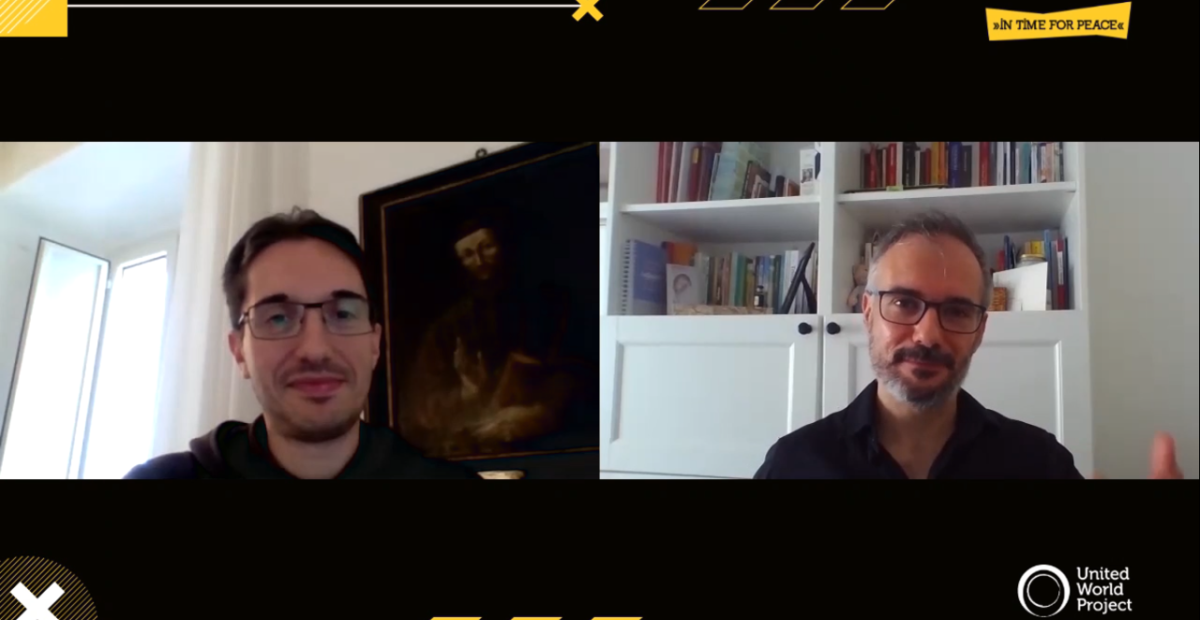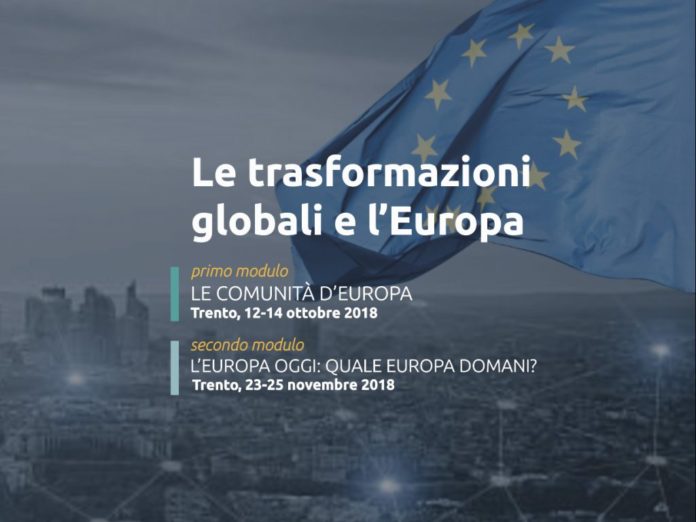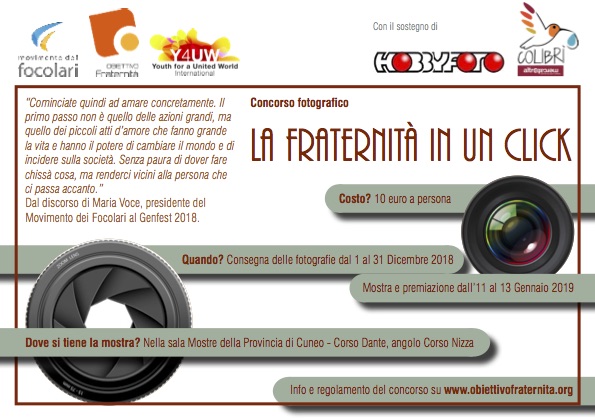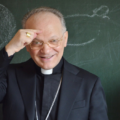
Watch
Cinque anni fa la Laudato Sì

Pope Francis’ encyclical on “care for our common home” – Laudato Si’ – was published on 24 May 2015. The title is taken from St Francis of Assisi’s Canticle of the Creatures. So we asked Friar Matteo Sito, Provincial of the Order of Friars Minor Capuchin in Umbria for his take on this anniversary, in the light of all that’s happening around Covid-19. Here are some of the interview highlights.
Pope Francis has declared Laudato Si’ to be a ‘social’ not a ‘green’ encyclical. So what is Laudato Si’?
Fra Matteo Siro: «Defining a document like this in a couple of words is simplistic, if not somewhat mortifying. Laudato Si’ is certainly of ecological significance by its very nature, but the Pope defines it as a social document precisely because the theme of ecology cannot be separated from the theme of human relations and of the effect the ecological issue has on human relations and on the reality of people’s lives. We’re living through a time when, because of an epidemic, we find ourselves somewhat restricted in our relations, which have totally changed. And we all feel nostalgia for socializing, we feel the need to meet like we used to in normal times. So I’d say that Laudato Si’ is a document of ‘integral humanism’, because the human person is at the centre of a much bigger system, which – through faith – we know comes from the hands of the Creator. Humanity is the custodian».
What signs of hope do you see, five years on from the encyclical’s publication? And what still needs to be done to implement it fully?
FMS: «Before Laudato Si’ the issue of ecology and the issues of how human beings act within a “common home” as it’s called, were somewhat detached from the daily life of most people. They didn’t see their concrete practical life being touched by these issues. One of the fruits of this document is how the Church, in its identity as a community of believers, is standing up and crying out that our common home is in danger. And this brings into sharp focus problems which will never be resolved unless we start from our daily behaviour. Laudato Si’ has made these themes more accessible. They’re being reconsidered at the institutional level as well, with an increasing sense of urgency. I think there’s an underlying idea of humanity which has to change. If the idea of humanity and the human person doesn’t change, we probably won’t be able to make the correct and complete transition that is required: to see humanity as the custodian of Creation, custodian and heir, not master. The common good cannot be separated from something which surpasses humanity itself.
I have to say that many economic and political systems are concealing this crisis. They’re probably concealing it because it’s comfortable for them to keep people subjugated to this kind of mentality rather than allowing them to rediscover the beauty of all the potential they have at the service of the common good within a common home. In his encyclical, the Pope refers to technocracy and economy which unfortunately still dominate the conception of the human being, rather than as a person, in relationship. Perhaps this transition will require a lot more time before it’s accomplished. All the preconditions exist, it now depends on us».
Referring to the problems you’ve raised concerning the primacy of technocracy and the quest for power and economic power at the expense of the life of the people: do you think the pandemic can help us, paradoxically, to rediscover the centrality of the person who is before us?
FMS: «If we look at the epidemic through a faith perspective, we can find a way of drawing out some good for ourselves and our relationships, for what we are, for our life as a person. And to tell you the truth, I believe the pandemic, which has sadly caused so much suffering and death, has also reawakened the idea, clearly outlined in Laudato Si’, that we’re all neighbors. No matter how vast the size of the globe, we’re all linked by a common destiny. This teaches us a lot about taking care of one another, because something happening far away from us cannot be something that doesn’t concern us personally. China, which is such a long way from Italy, has now become very close. The same with Brazil, where we have our missionaries. It’s become really close to us, because they’re now living what we went through a month and a half ago. If we go on dealing with a crisis like this by concentrating more on the numbers than on the people involved, missing the correct vision that the numbers are at the service of the people and not the other way round, then we will have lost a real opportunity. But I’m sure we will come out of this more aware of what we are, of the beauty of the human person and of each person’s fundamental value».
You mention Brazil. I have to ask you about the Mission in the upper Solimões region of the Amazon, where your Province has been present for over 110 years. How are they getting through this period?
FMS: «I hear from the friars nearly every day. They report a critical situation in the big city of Manaus. where a complex series of social problems are complicating the response to this crisis. Up to now it’s been limited but concerns are increasing for the indigenous population living in the interior whom we serve pastorally. The indigenous population will not have immune defences against an epidemic like this. So the spread of the virus into their communities would be a tragedy. Hence our missionaries are being very careful. Unfortunately they can’t go into the forest, they have to keep away from the indigenous populations at a pastoral level, so as to avoid contagion. In this way, they’re being safeguarded in some way. Whereas the tragedy is unfolding in the big cities where unfortunately any health facilities are inadequate to meet the needs. Our friars are feeling well, very motivated and are continuing with their mission, while living in a state of high alert. They know they’re risking their lives, but that’s part of mission».
Covid-19 and the teaching of Laudato Si’ show us never to ignore the cries of the peoples, no matter how far away from us they may seem. Would you agree?
FMS: «We ourselves really feel it too. It’s almost as if we’re united to that cry. It’s said that we don’t appreciate what we have until it’s gone. And now we find ourselves appreciating those realities we had around us before, and we used to think that anyone who didn’t have them was living in another world! We’re all living in the same world. And the abundance we enjoy is no justification for not opening our eyes and ears to the needs of others. We must act so that all peoples can have access to what we can normally have access to».
In the end, over the years maybe what Laudato Si’ has taught us is this, to focus on our relationships as persons, in all their and our needs?
FMS: «Absolutely. The Pope has given a great lesson through this document. To restore the vision of humanity made in the image and likeness of God. This phrase may trip off the tongue when we say it, but we don’t realise the gravity of this kind of statement. And knowing, at least for us Christians, that God is relationship, mans that humanity can’t survive without a correct kind of relationship. Humanity is at the centre, we came from the hands of God through abundance of love. There’s an anthropocentrism which is to be praised, but there’s also another kind which is most definitely not Christian – when men and women purport to forget they are sons and daughters, the children who are also heirs of this earth».
Pope Francis is asking for concrete conversion, in our daily behaviour …
FMS: «When we speak of values and spiritual things, we tend to think of them only in connection with our interior life. However they’re part of our concrete life, from when I get up in the morning and start to do everyday things. The Pope is calling on us, saying, “listen, spiritual means concrete”».






